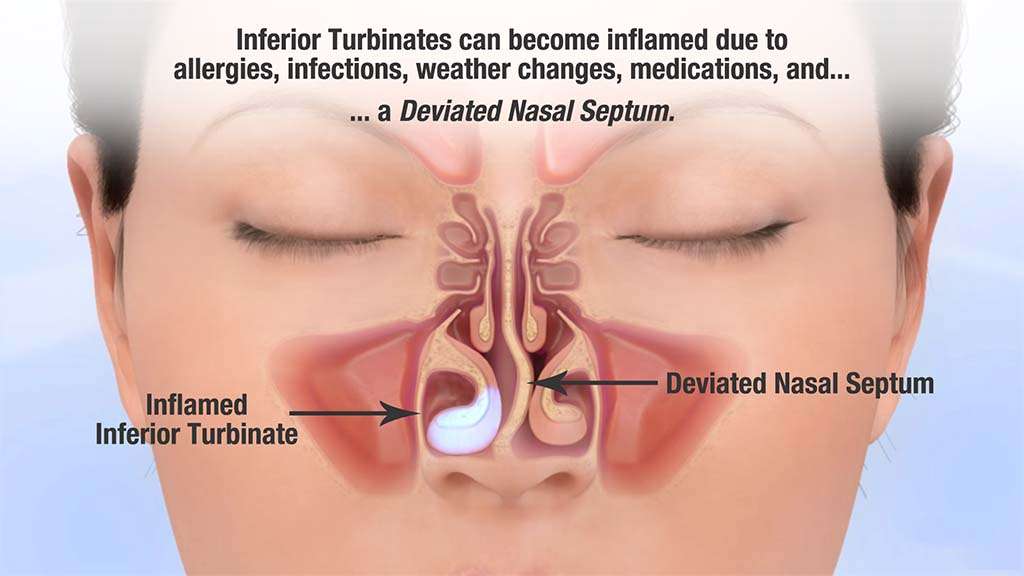Deviated Nasal Septum
Simple, minimally invasive nasal septum surgery that improves airflow and breathing
What Is a Deviated Nasal Septum?
Did you know that almost 80% of people have a deviated nasal septum due to genetics, injury or trauma?
A deviated nasal septum is a condition of the nose where the thin wall of bone and cartilage that separates your left and right nasal cavities is displaced to one side, or crooked. This thin wall is your nasal septum and when it’s displaced, crooked, or deviated, it can make one of the nasal passages smaller, or more restricted, than the other. There are many people living with a deviated septum that don’t seek treatment because they’re either asymptomatic or the symptoms they experience are only slightly uncomfortable.
However, many people do suffer from a severe deviated nasal septum which can block one side of the nasal passage and result in reduced airflow. This makes breathing difficult and can lead to snoring and sleep apnea. A deviated septum can also cause additional oral or dental problems such as bad breath or tooth decay.

Symptoms of a Deviated Nasal Septum
- Difficulty breathing
- Repeated sinus infections
- Significant congestion in one nostril (versus less significant congestion in the other nostril)
- Chronic postnasal drip leading to sore throat or ear pressure
- Nosebleeds
- Facial pain
- Headaches
- Sleep disturbances such as snoring and sleep apnea, or loud breathing during sleep
Causes a Deviated Nasal Septum
Genetics
A deviated septum can be present in a newborn at birth. Up to 31% of newborns arrive on this earth with a deviated septum.
Injury
A deviated septum can also result from trauma or injuries, i.e., childbirth for babies and contact sports, incidental contact, rough play, or vehicular accidents for adults (to name but a few)
Deviated Septum Treatment with Nasal Septum Surgery
If you suffer from any of these symptoms, please call BergerHenry ENT Specialty Group for an appointment with our board-certified otolaryngologists so that the proper diagnosis can be determined.
If we do determine that you have a deviated symptom, we offer deviated septum treatment without surgery such as medications to try to offset the symptoms. If medications do not provide the necessary relief, we may recommend nasal septum surgery such as a septoplasty which is a simple, minimally-invasive outpatient procedure that straightens the nasal septum in order to improve breathing, or a turbinoplasty which is a turbinate reduction. Most patients are able to resume normal lifestyle activities the day after nasal septum surgery.
